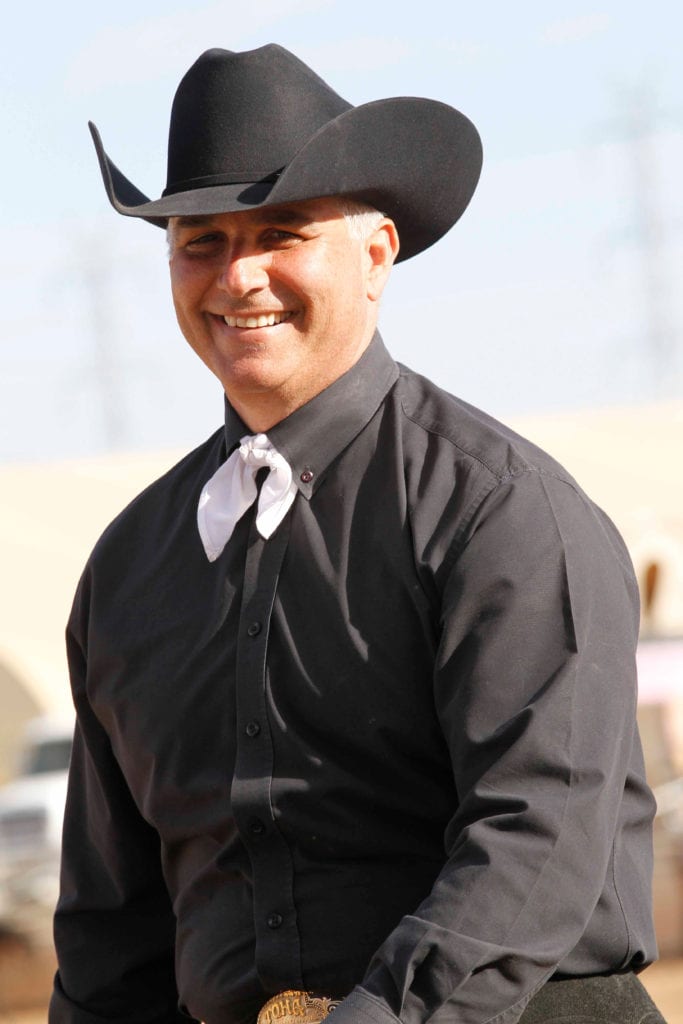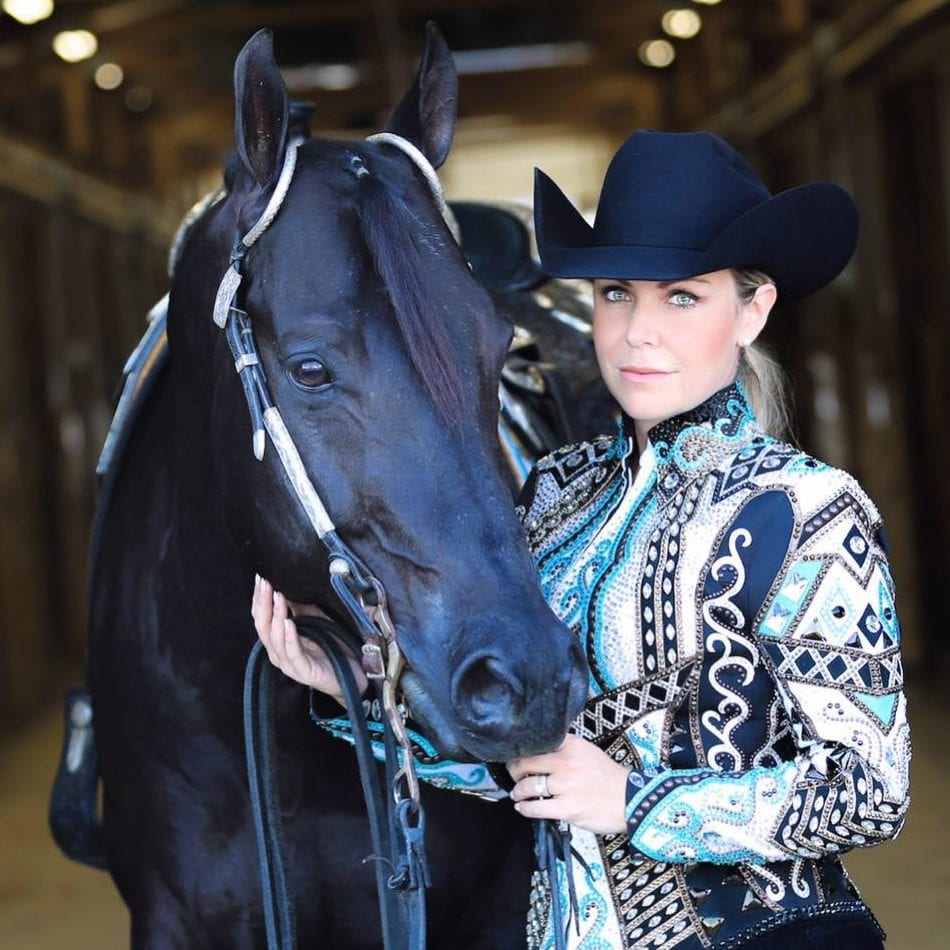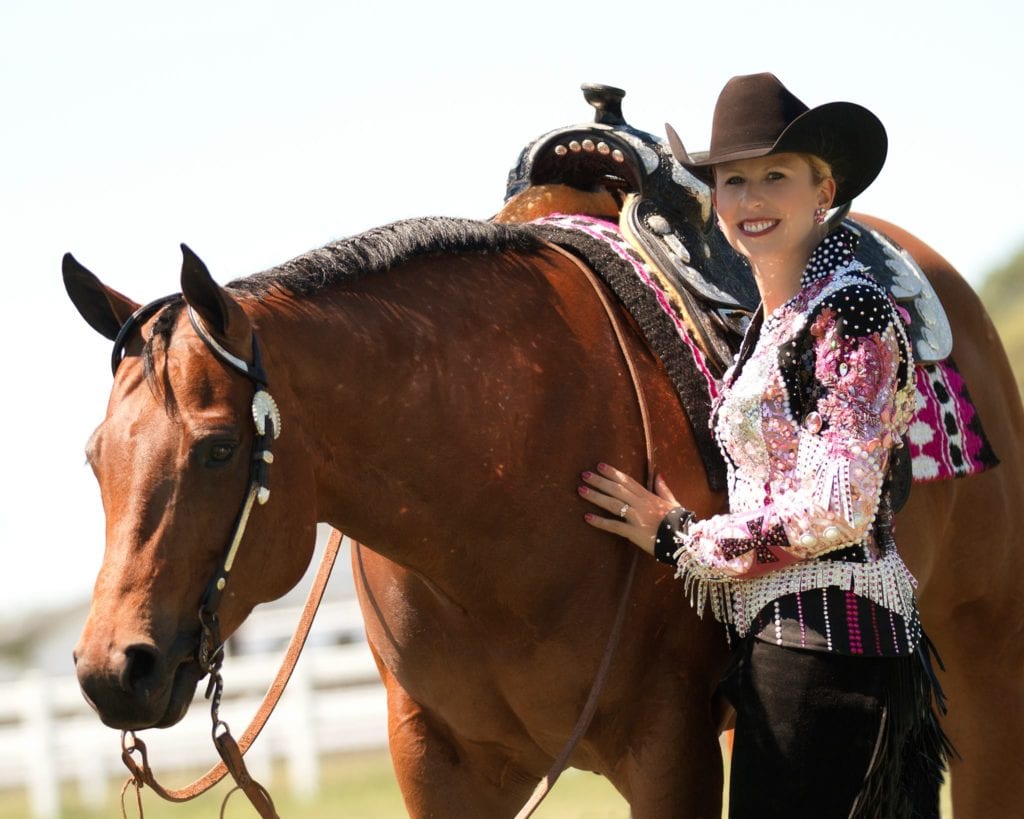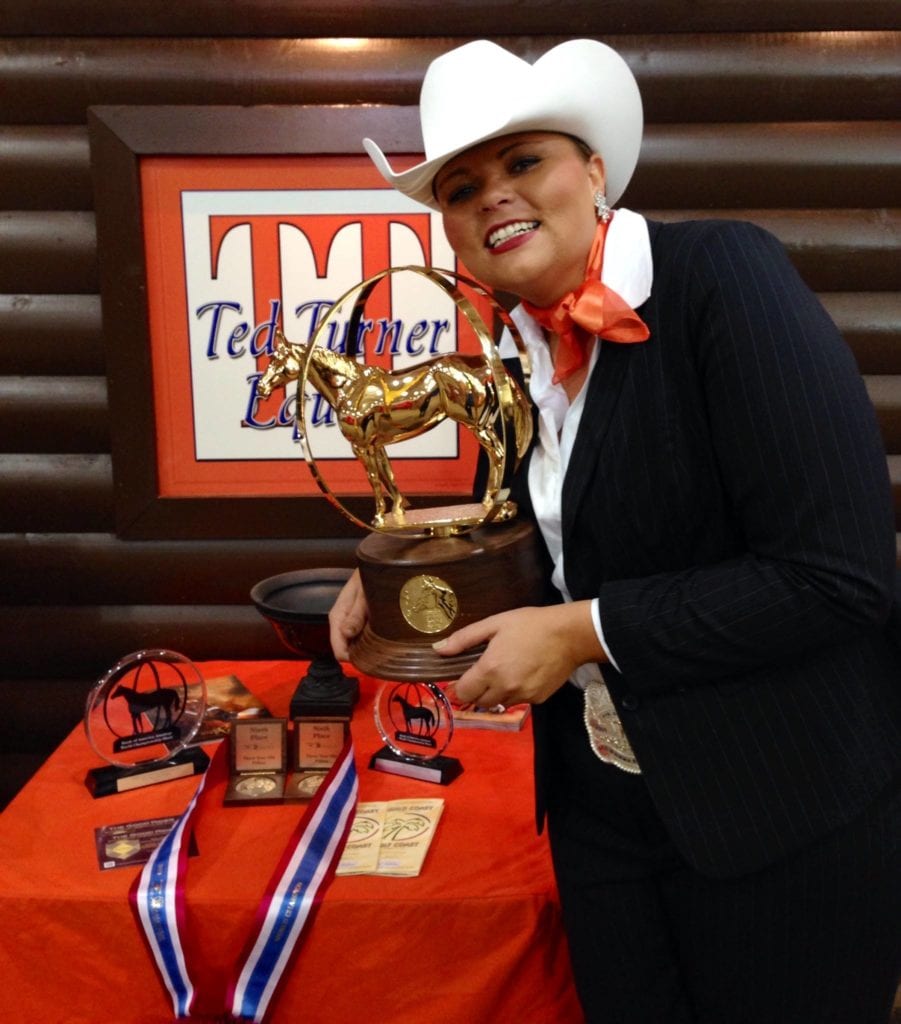Reaching the ripe age of 19 brings new and exciting challenges in the show ring…as an amateur. Often times, one of the most difficult elements of competing in this division is the job you have to have to support your passion. As much as we would all like to keep showing horses at the top of our priority list, it just isn’t always feasible.
GoHorseShow talked to some of the industry’s finest working amateurs about how they balance horse show life with careers outside of the equine industry. They also offered some insight into things that work at individual show circuits to accommodate the working amateur and advice to people who are struggling to make both showing and a career a functional part of life.
Meg DePalma-Whelan (pictured above)
I am a Regional Vice President for one of the largest insurance companies in the world. My career has me traveling in the states of Georgia, South Carolina and, most recently, North Florida. I create my own schedule so I try and plan around the big shows we know are always on the calendar. I have over seven weeks paid vacation a year accumulated over ten years at my company. That helps big time.
It’s difficult for show management to please everyone, but I do feel they try to help the “self-made” amateurs. I prefer the 4-day shows over the long ten day runs just because of the time away and the wear on my horses. My clients know of my crazy horse hobby and understand that when I’m out of the office, that normally means I’m at a horse show. I answer my work phone at shows and stay available for my clients as much as I can. I bring my laptop to check in on sales as well. My advice to the folks who want to have a successful career and show is to remember the job pays the bills. You need to remain successful at the job to remain successful on the show circuit.
 Dan Yeager
Dan Yeager
I am the Vice President for a real estate development firm that has a focus on multi-family units/apartments, so I have to look at the year far in advance and put potential shows on my work calendar. As the shows approach, I start looking at the days I wouldn’t be competing. Those days are usually filled with scheduled meetings and other work related things. I am lucky enough to work remotely, so I have that option. When there are big projects coming up for work, I have to be understanding. Work trumps horse showing. I am lucky enough to pursue this passion, and you just have to remember that there will be another horse show.
As far as horse shows being set up for the working amateur, some are great and some are not. It’s impossible to please everyone, but I love shows that split open from the amateur and the youth. If a show is a week long, starting the amateur towards the end of the week is more ideal.
I enjoy my work and am stimulated by that. It is also competitive in nature. While horses help me escape and clear my mind, my job has taught me to multitask and be a problem solver, both of which help me in the show arena.
You just have to accept that jobs have to come first sometimes. I used to get irritated about having to miss a show for work, but I now understand that work pays for this. I’m lucky to have a horse and the opportunity to show.
I am a counselor at Montcalm Community College. Primarily, I am responsible for academic advising, career counseling and planning, and some personal counseling. I miss a lot of work to show. I use most of my vacation time from my work to go to horse shows. Each year, I pick the shows I want to go to and use my vacation time for those shows. If a show is close, I will often work and go to the show after work. I also try to stay relatively close to Michigan as travel time also means more time off work. I am lucky that my work is pretty flexible in terms of schedule, I can usually get the days off that I need. Often I will get home from a show in the middle of the night and go to work the next day.
Some shows are better than others for working amateurs. Personally, I like to go to a show that I have to take the fewest days off as possible. I love the shows that are four judges in two days. I think often the shows are considerate to the youth that have to go to school and try to schedule accordingly, but don’t think about the working parents or amateurs.
My life is very different now than it was 15 years ago as I have a full time job and two kids. Fortunately, due to a somewhat flexible job, supportive family and a wonderful horse, I am still able to show quite a bit but I do acknowledge that my priorities have shifted over the past decade. There are shows I can’t go to because of my work schedule or because of something going on in my kid’s life and that is okay. Because my time off is precious and even the extra time between the shows is limited, having a full time job has made me appreciate the shows I do go to even more.
Being an anesthetist can be a very busy and demanding career. My job allows me six weeks of vacation a year. I spend 95% percent of this vacation time at horse shows. As much as I would love shows to come first, my work comes first. If I didn’t have this career I wouldn’t be worried about show schedules, because I wouldn’t have the horses. I have to plan my vacation a year in advance, which makes it tough to tentatively plan for shows.
Balancing being a mom, having a full time job, and a show schedule is a lot of stress. That’s where my amazing trainers come in. Ted Turner is classic example of that. He is fantastic about communicating the game plan, and I know well in advance the show schedule. Having a show career along with a professional career is totally attainable, and doable. I personally enjoy having a career outside the horses. It makes me appreciate my trainers and horses that much more.
My gratitude is endless for those people who put on the shows and work on the show circuits. I can’t thank them enough for all their hard work and dedication to these shows and our industry. The one thing that truly benefits the working amateur the most I feel, is getting the show dates out as early as possible along with the schedule. It helps us plan around our work schedules and I am thankful for that.
My job as a physician liason at Penn State Health allows a little more than four weeks vacation, and I use almost all of it for showing. I typically pick and choose what shows I can get the most experience and points at.
I wish I could do the ‘circuit’ shows, but I can’t. I would rather do the four day shows. I do what I can because I have to work to do this. My job comes first – horse shows can wait. Honestly, that was a hard lesson to learn but it’s very true.
It’s important for young people just graduating college to know that horse shows will always be there. If you have to take a few years off to get your career going, do it.
******
These working amateurs have very similar themes. Horse showing is a passion that requires intense commitment of time and energy. The truth is, most people can’t show every weekend or miss full weeks of work. It takes planning a year in advance to even have a chance to show and even then, it might not work out the way we want.
The horse shows that seem to be the most appealing to this group of amateurs appears to be the 4-day circuits. These shows usually start on a Thursday and allow for amateurs to show in all of their classes to multiple judges over a short period of time.
Accepting that jobs have to come first is also an indicator of how important it is to have a career that you enjoy. Even though showing horses will always come first to people like us, it’s crucial to not dislike the place you spend the most time. Horse shows will always be there waiting, and will always be the best escape from reality, but in order to get there, we must work. Hats off to working amateurs like the ones above. Your dedication, however somewhat underrated, does not go unnoticed.












